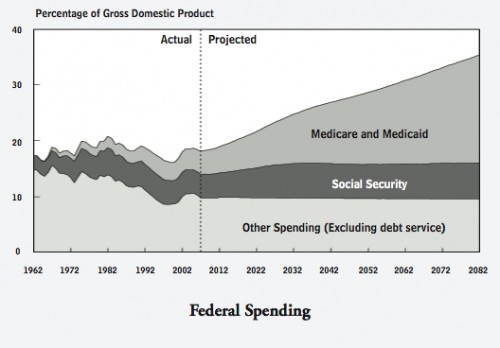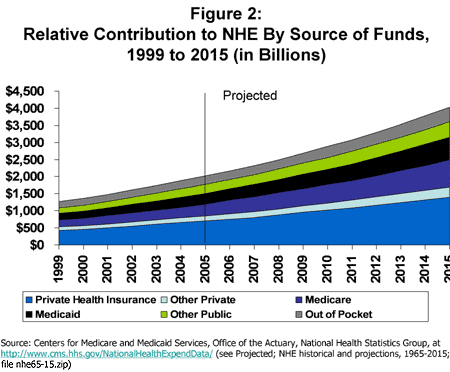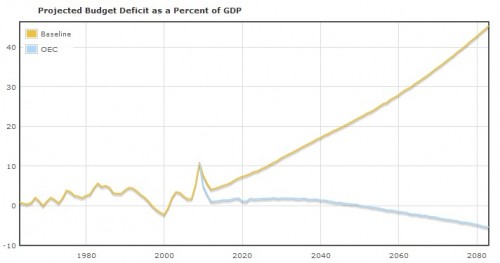With a blog post titled “The Road to Medicare, not The Road to Serfdom,” Tyler Cowen got me to read his NY Times column in which Medicare is mentioned exactly once:
While we can expect a larger public sector in America, the cause is mainly the aging of the population, and it will play itself out over the next 30 years with an increase in government transfer payments, mostly through Medicare. Furthermore, even Professor Hayek favored welfare spending and social insurance, so those programs will not alone bring us to serfdom.
The message of the column, titled “A Pendulum Swing Toward Austerity,” is that (1) fiscal belt-tightening is back and (2) it should be. Point (1) is clear, though it remains to be seen whether anybody is really serious about it. Point (2) is the subject of the great argument between Paul Krugman and Niall Ferguson. That is to say, it’s at least debatable.
But what has this got to do with Medicare? Everything. Public health spending is the source of our long-term debt problem (see first graph below). What underlies that problem is not that Medicare is a public program per se, but that the rate of increase in health spending in general is too high. That is, the same health spending growth problem exists on the private side too (see second graph below). This message didn’t come through in Cowen’s piece. With the blessing of Hayek, Medicare got an easy pass. Why?
With a health spending problem like this–government health programs (Medicare+Medicaid) alone projected to gobble up 20% or more of GDP by late in the century–does anything else matter? No, except in political terms. The reason to fight about spending now is because the fight is really about something else (e.g. notions of liberty, ideological signaling, or political positioning). To actually solve the real long term problem requires a focus on health spending. Don’t sweat the rest.
By the way, the best line in the column, and one I whole heartedly agree with, is “[E]ffective political ideas are those that can still do good in half-baked form.” The Affordable Care Act has a few ideas in it about how to rein in Medicare and overall health spending. Are they at least “half-baked?” I think so. Will they work? Only if we let them.
One more figure (below) to bring it home. It’s from the Health Care Budget Deficit Calculator, produced by the Center for Economic and Policy Research. It shows the effect on the U.S. budget deficit as percent of GDP of a continuation of baseline health care cost trends (yellow line) and of a change to health cost trends of high income OECD countries (blue line). Yes, it’s all about health care.





